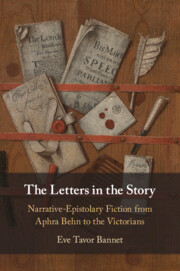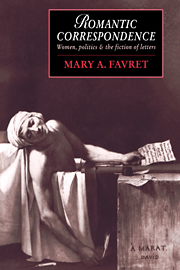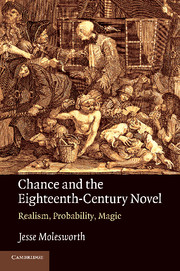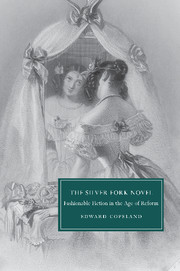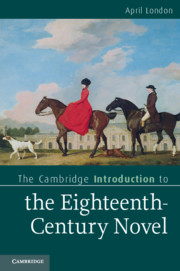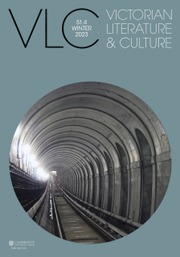The Letters in the Story
Narrative-Epistolary Fiction from Aphra Behn to the Victorians
- Author: Eve Tavor Bannet, University of Oklahoma
- Date Published: November 2021
- availability: This ISBN is for an eBook version which is distributed on our behalf by a third party.
- format: Adobe eBook Reader
- isbn: 9781009008532
Find out more about Cambridge eBooks
Adobe eBook Reader
Other available formats:
Hardback, Paperback
Looking for an inspection copy?
Please email [email protected] to enquire about an inspection copy of this book
-
The long tradition of mixta-genera fiction, particularly favoured by women novelists, which combined fully-transcribed letters and third-person narrative has been largely overlooked in literary criticism. Working with recognized formal conventions and typical thematic concerns, Tavor Bannet demonstrates how narrative-epistolary novels opposed the real, situated, transactional and instrumental character of letters, with their multi-lateral relationships and temporally shifting readings, to merely documentary uses of letters in history and law. Analyzing issues of reading and misreading, knowledge and ignorance, communication and credulity, this study investigates how novelists adapted familiar romance plots centred on mysteries of identity to test the viability of empiricism's new culture of fact and challenge positivism's later all-pervading regime of truth. Close reading of narrative-epistolary novels by authors ranging from Aphra Behn and Charlotte Lennox to Frances Burney and Wilkie Collins tracks transgenerational debates, bringing to light both what Victorians took from their eighteenth-century forbears and what they changed.
Read more- Discovers a long, previously forgotten, tradition of narrative-epistolary novels that was largely identified in Britain with female novelists
- Demonstrates how narrative-epistolary novelists utilized embedded letters to challenge empiricist and later positivist methods and assumptions
- Uses a historical narratology to link nineteenth-century Victorians and their eighteenth-century predecessors
Reviews & endorsements
'… I applaud Bannet's experimental reinvestigation of letters in fiction, which inaugurates a different, important way of reading them as purposefully bound to narrative.' Laura Rotunno, Review19
See more reviews'Eve Tavor Bannet … tells two intertwined stories. One uncovers the unique mixed genre of 'narrative-epistolary fiction'; the other examines how 18th- and 19th-century narrative-epistolary fiction joined with romance and mystery genres to engage with empiricist and positivist thought … I applaud Bannet's experimental re-investigation of letters in fiction, which inaugurates a different, important way of reading them as purposefully bound to narrative.' Laura Rotunno, Review19
'This is a book that should be read and its insights pondered by everyone who teaches English fiction between Aphra Behn and Anthony Trollope … The Letters in the Story packs a huge amount of erudition and analytic acuity into a relatively small number of pages … a major contribution to our understanding of viewpoint and meaning in the pre-twentieth-century novel in English.' Robert D. Hume, The Eighteenth-Century Intelligencer
'Bannet's insightful interrogation of often-neglected as well as familiar works encourages their reappraisal, and her caution regarding overly trusting reading remains pertinent. … Recommended.' J. Rosenblum, Choice
'… breaks new scholarly ground in delineating a little-known novelistic tradition she terms “narrative-epistolary fiction” for the first time. … this important study shows how letters embedded in narratives are best understood as making meaning together collaboratively. In illuminating this point, Bannet brilliantly maps out the critical territory needed for new kinds of conversations about the relationship between the epistolary and the novel form, both in this period and beyond.' Crystal Biggin, Women's Writing
Customer reviews
Not yet reviewed
Be the first to review
Review was not posted due to profanity
×Product details
- Date Published: November 2021
- format: Adobe eBook Reader
- isbn: 9781009008532
- availability: This ISBN is for an eBook version which is distributed on our behalf by a third party.
Table of Contents
Preface: 'To the reader'
Introduction: The letters in the story
1. Framing narratives and the hermeneutics of suspicion
2. Letters and empirical evidence
3. Cultural expectations and encapsulating letters
4. Epistolary Peripeteia
5. Hermeneutics of perspective.
Sorry, this resource is locked
Please register or sign in to request access. If you are having problems accessing these resources please email [email protected]
Register Sign in» Proceed
You are now leaving the Cambridge University Press website. Your eBook purchase and download will be completed by our partner www.ebooks.com. Please see the permission section of the www.ebooks.com catalogue page for details of the print & copy limits on our eBooks.
Continue ×Are you sure you want to delete your account?
This cannot be undone.
Thank you for your feedback which will help us improve our service.
If you requested a response, we will make sure to get back to you shortly.
×
